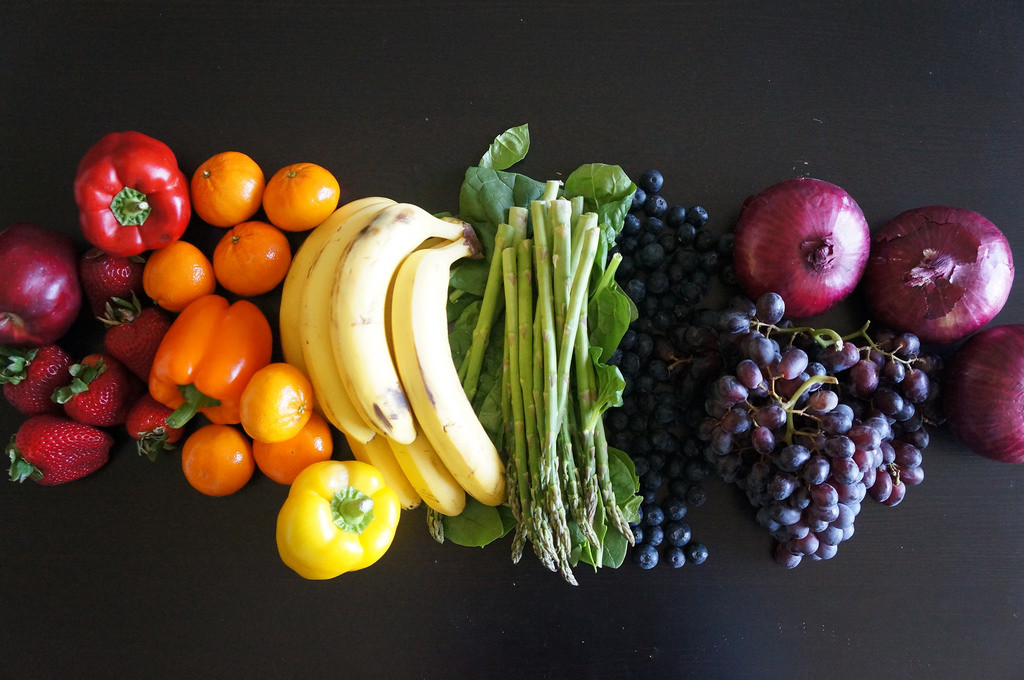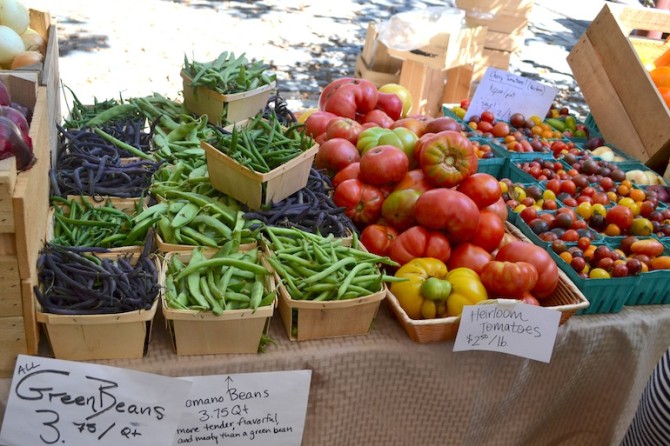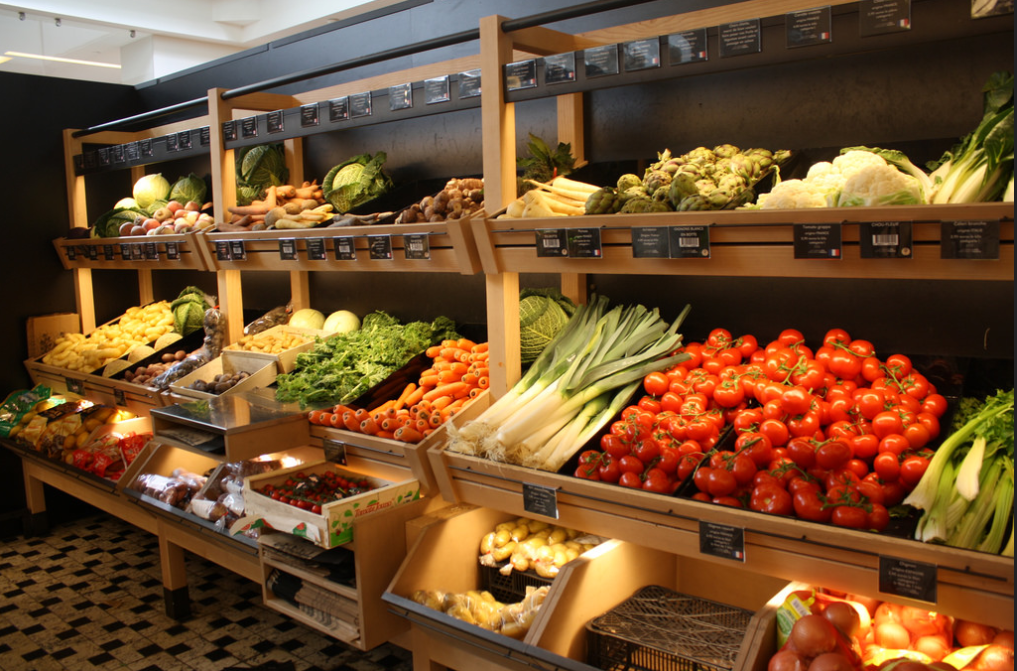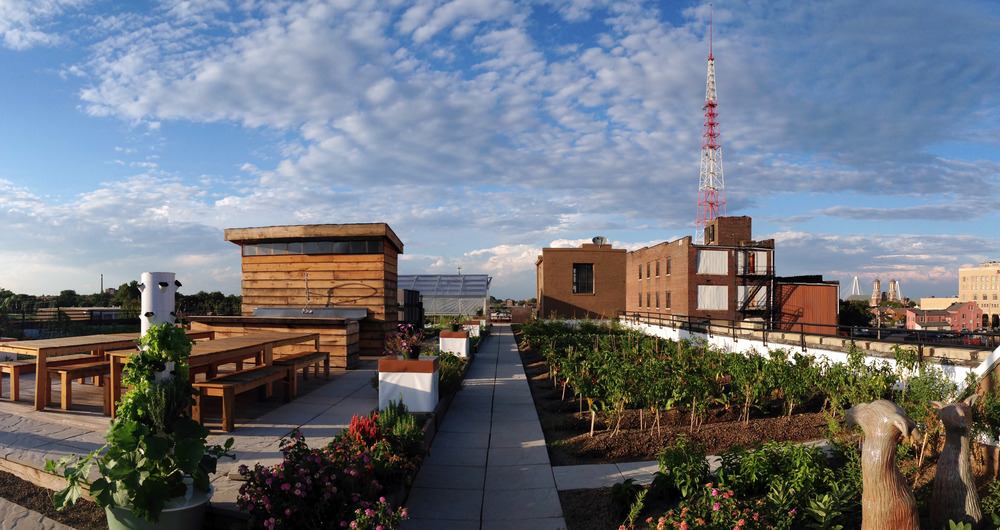October 24 is recognized each year in the U.S. as Food Day, a day to work toward progress on food-related problems dealing with health, social justice and sustainability. The idea is both to advocate for and enjoy food in its natural state – produced without added chemicals, processing or genetically modified ingredients – by local farmers in ways that respect our environment.

Photo by Sean Koetting
This year, to make sure Wash U students have the opportunity to participate in this effort, the Office of Sustainability, in partnership with Harvest Health and Burning Kumquat, has organized Food Week from Monday, October 19 to Saturday, October 24. Activities include a food drive, tours of St. Louis’ first rooftop farm, tours of Kaldi’s Coffee roasting facilities, a screening of Cowspiracy and a skillshare on potting plants.
The nationwide theme for this year’s Food Day is “Toward a Greener Diet.”
Emma Searson, Office of Sustainability intern, explains, “Part of the definition of a greener diet is consuming less animal products – something the Office of Sustainability has been working toward with ‘Green Monday.’ Animal products tend to have a much higher effect on the environment, whether it’s due to land use, water consumption or carbon dioxide emissions.”

Photo by Amanda Shulman
Another part of that definition is the school’s focus on local and organic food, including options that are both socially and environmentally responsible, such as Fair Trade.
In fact, the social injustices surrounding food distribution are particularly relevant when considering the pockets of food deserts just a few miles away from Wash U, in East St. Louis. In these areas, healthy food options are unavailable, with corner bodegas standing in for grocery stores.
Searson also adds that a vegetarian or vegan diet can have health benefits, so long as you make sure to maintain a balance. According to the Food Day website, health problems including obesity, diabetes and heart disease cost Americans more than $150 billion per year – a daunting number that Food Day hopes to reduce by encouraging a greener diet.

Photo by Daisy Dolan
One of the most exciting parts of Food Week is the opportunity for Wash U students to take a tour of a 10,000-square-foot rooftop farm located near the City Museum, run by the local non-profit Urban Harvest STL. Overseen by Mary Ostafi, who previously worked in Wash U’s Office of Sustainability, the green roof is home to a variety of vegetables, as well as a community garden. The farm supplies microgreens to downtown restaurants and donates produce to the St. Patrick Center.

Photo courtesy of urbanharveststl.org
Students who want to attend any of the Food Week events should sign up through the Facebook page. For those who forget to sign up, simply show up at the Office of Sustainability before the scheduled time of an event to get assistance with transportation.


